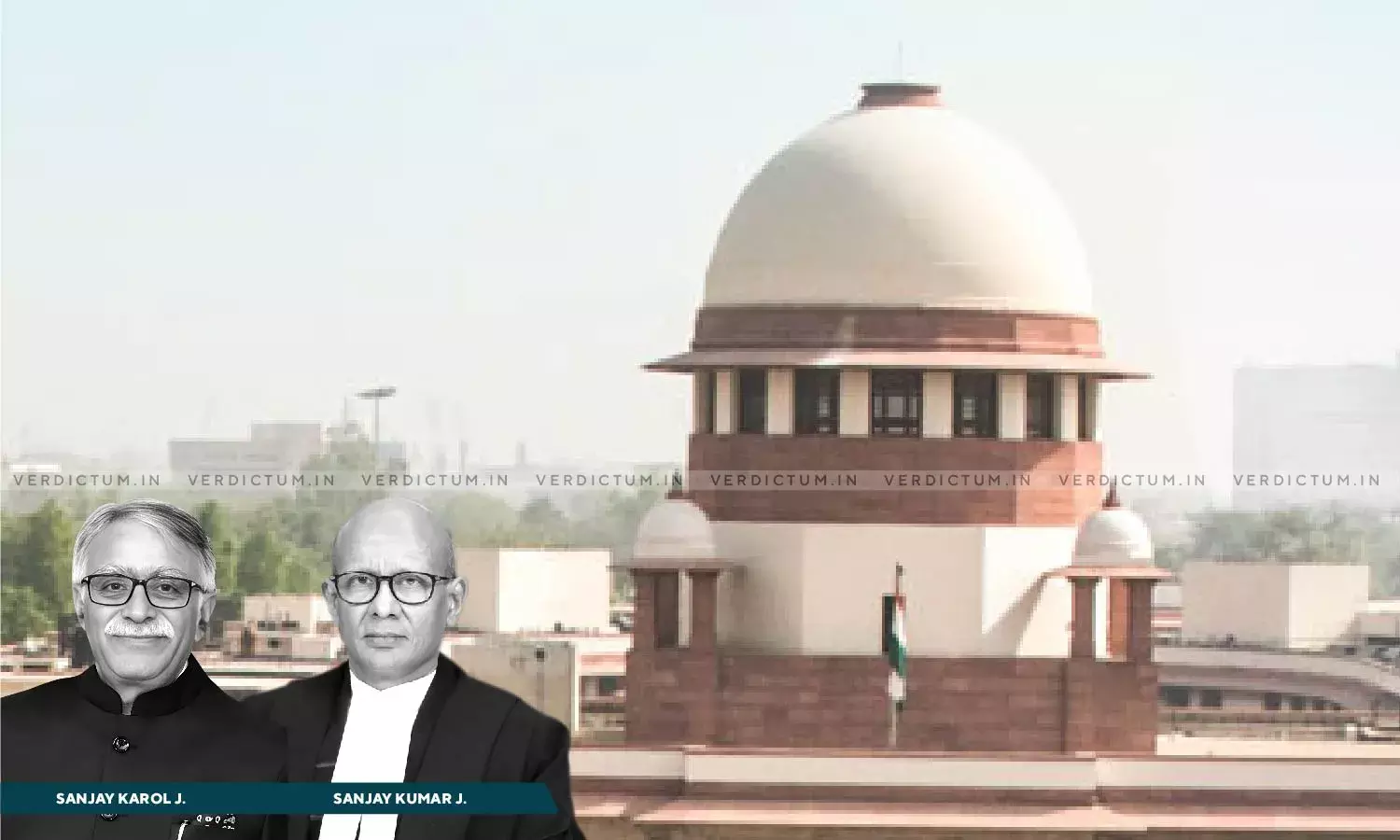Will Cannot Be Brushed Aside Lightly If Mandatory Requirements U/S 63 Indian Succession Act Were Duly Satisfied By Adducing Evidence: SC

The Supreme Court observed that a Will cannot be brushed aside lightly if mandatory requirements prescribed under Section 63 of Indian Succession Act were duly satisfied by adducing evidence in terms of Seection 68 of the Evidence Act.
The Original owner of the property had two wives. The daughter had claimed that she purchased the suit property from the other daughter of the owner and his children. While the other daughter denied selling the property and claimed that her father had executed a will in favour of her son. She asserted that she was misled into signing sale deeds for other properties as she was uneducated and trusted them.
The Madhya Pradesh High Court had decreed the possession of the suit property through a registered Sale Deed and declared the will as null and void.
Justice Sanjay Karol and Justice Sanjay Kumar observed, “The depositions of the attestors of the Will also remained unshaken and clearly evidenced that the same was signed…Once such evidence was adduced in terms of Section 68 of the Evidence Act, 1872, and the mandatory requirements prescribed under Section 63 of the Indian Succession Act, 1925, were duly satisfied, the Will stood proved in the eye of law…and the same ought not to have been brushed aside lightly.”
Sr. Advocate Meenakshi Arora represented the appellants, while Sr. Advocate N.K. Mody appeared for the respondent.
The Supreme Court noted, “The High Court glossed over this Will, entertaining a doubt as to its genuineness, only on the ground that it was not produced earlier and as the first defendant had affixed her signature in the Sale Deed.”
The Court remarked that the High Court had failed to appreciate the independent evidence adduced to prove the will. Once evidence was adduced in terms of Section 68 of the Evidence Act, 1872, and the mandatory requirements prescribed under Section 63 of the Indian Succession Act, 1925, were duly satisfied, the Court held that the “will stood proved in the eye of law.”
The Court stated, “The owner of the property under the Will was Meghraj, the second defendant, and he was neither a party to the said sale deed nor did his mother affix her signature therein in the capacity of being his guardian.”
The Court held that the High Court erred in overturning the decision of the trial court.
Accordingly, the Supreme Court allowed the appeal.
Cause Title: Savitri Bai & Anr. v. Savitri Bai (Neutral Citation: 2024 INSC 152)
Appearance:
Appellants: Sr. Advocate Meenakshi Arora; AOR Awantika Manohar; Advocates Sunil Singh Parihar, C. Chaube, and Nanakey Kalra
Respondent: Sr. Advocate N.K. Mody; AOR Akshat Shrivastava; Advocate Pooja Shrivastava

